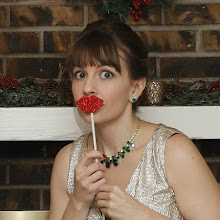Have you ever read a book that you wanted to crawl inside of? To step into the world within the book, and interact with the characters? Have the words of an author ever tugged at your heart with their truth?
That is how I felt about Rules of Civility. I fell hard for this book- for the setting of 1938 New York City, for the cavalier characters, for the richness and truth of the language. My heart was stirred by this book, and that's not a thing I say lightly.
The last time I recall feeling so enraptured by words was when I discovered the writing of Thomas Hardy. There's a man who can so poetically describe the plight of humanity, his words ringing true even after more than a century. Words have such a pull on me, as I find in them comfort and companionship.
Amor Towles' writing in Rules of Civility reminds me a little bit of The Great Gatsby. Here we have a narrator in her mid-twenties, from lower-middle class New York. She is a fairly ambitious woman who knows what she is capable of. Through her eyes, we see the glitz and grit of New York City. We meet characters with greater ambition than she, who are willing to do anything for higher status. We also meet some frivolous bluebloods who are meandering their way through their twenties without any regard to the future. We see great parties and we see destitution, all of which could be found in the Great Gatsby.
To give you an idea of how the language touched me, I would like to share a few quotes with you:
"Old times, as my father used to say: If you're not careful, they'll gut you like a fish."
This quote comes early in the story, referring to a tinge of regret the narrator, Katey, felt after talking with someone who might otherwise have been a flame.
"You see that thirty-year-old blonde next to Jake? That's his fiancee, Carrie Clapboard. Carrie moved all manner of heaven and earth to get into that chair. And soon she will happily oversee scullery maids and table settings and the reupholstering of antique chairs at three different houses; which is all well and good. But if I were your age, I wouldn't be trying to figure out how to get into Carrie's shoes- I'd be trying to figure out how to get into Jake's."
I loved this little flash of feminism, coming from possibly the most feminist character in the novel.
"Uncompromising purpose and the search for eternal truth have an unquestionable sex appeal for the young and high-minded; but when a person loses the ability to take pleasure in the mundane- in the cigarette on the stoop or the gingersnap in the bath- she has probably put herself in unnecessary danger. What my father was trying to tell me, as he neared the conclusion of his own course, was that this risk should not be treated lightly: One must be prepared to fight for one's simple pleasure and to defend them against elegance and erudition and all manner of glamorous enticements.
In retrospect, my cup of coffee has been the works of Charles Dickens. Admittedly, there's something a little annoying about all those plucky underprivileged kids and the aptly named agents of villainy. But I've come to realize that however blue my circumstances, if after finishing a chapter of a Dickens novel I feel a miss-my-stop-on-the-train sort of compulsion to read on, then everything is probably going to be just fine."
Who hasn't felt that sort of compulsion while reading? And to put things in such clear perspective, it simply makes me feel that everything is probably going to be just fine.
"The romantic interplay we were having wasn't the real game- it was a modified version of the game. It was a version invented for two friends so that they can get some practice and pass the time divertingly while they wait in the station for their train to arrive."
Here the narrator is comparing one of her dalliances with a game said dalliance had just taught her: honeymoon bridge.
"After meeting someone by chance and throwing off a few sparks, can there be any substance to the feeling that you've known each other your whole lives? After those first few hours of conversation, can you really be sure that your connection is so uncommon that it belongs outside the bounds of time and convention? And if so, won't that someone have just as much capacity to upend as to perfect all your hours that follow?"
Here Towles captures that spark so well- that feeling that acting upon something could bring you either great joy or deep misery. For personal reasons, this quote really spoke to me, and I'm sure anyone who has ever felt that spark knows the truth behind this quote.
Ultimately, I found this to be a novel full of hope, despite many bittersweet circumstances that occur. The ending was satisfying, and I found myself feeling sorry to close the book at the end, wishing to hold onto the story just a little longer. I am sure this is a book I will re-read, and I will be recommending this to anyone who asks (and some who don't) for a while to come.
What was the last book that you feel head-over-heels for? Do you have any book recommendations? I would love to hear from you in the comments below!
.JPG)




0 comments:
Post a Comment
I'd love to hear from you!